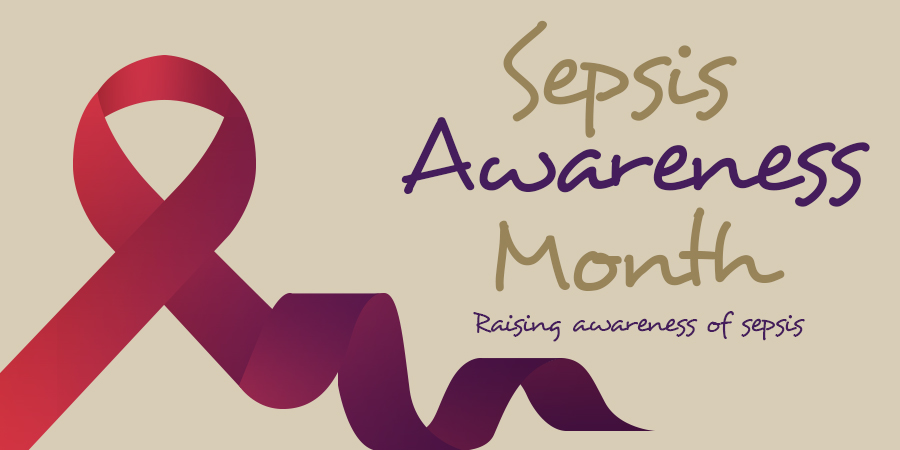Sepsis Awareness Month

September is Sepsis Awareness Month; a month dedicated to raising awareness of sepsis, its symptoms and the long-term impact it can have on people’s lives.
In the UK, there’s estimated to be around 245,000 cases of sepsis every year, leading to around 48,000 people losing their lives.
Sepsis (also known as blood poisoning) is a life-threatening condition which can strike anyone, at any time. If not treated immediately, sepsis can result in organ failure and death. However, sepsis is avoidable and treatable with early diagnosis.
At Eximius, we are dedicated to raising awareness of sepsis. Our carers are well versed in the symptoms to look out for, as well as in supporting those affected by sepsis and ensuring they receive the care they need to aid their recovery.
What is Sepsis Awareness Month?
Sepsis Awareness Month is dedicated to raising awareness about sepsis and, specifically, the importance of early detection.
Our live-in carers provide crucial support for individuals recovering from sepsis. They offer essential assistance with daily living activities, emotional support and monitoring for any signs of complications, ensuring that patients receive the care they need to continue their recovery and rebuild their lives.
Did you know…
- Five people die with sepsis every hour in the UK
- There’s an estimated 123,000 cases of sepsis per year in the UK
- 25,000 hospital admissions with sepsis each year in the UK occur in children
- 80% of those diagnosed with sepsis are aged 50 years or over
- 40% of all sepsis survivors suffer permanent, life changing after effects
What is sepsis?
Sepsis is an extremely serious condition, occurring when the body’s immune system overreacts to an infection or injury, attacking its own organs and tissues. Without early identification and treatment, sepsis can lead to organ failure, long-term disability or even death.
Although some people are at higher risk of developing sepsis (e.g. those with a weakened immune system, a serious illness or who have recently undergone surgery), anyone can develop sepsis after an injury or minor infection.
How to spot the signs of sepsis
While sepsis can be a life-threatening condition, early identification and treatment can often lead to successful recovery. However, recognising the early signs of sepsis can be challenging.
How do I check myself for sepsis?
When looking out for symptoms of sepsis in adults – think SEPSIS:
- Slurred speech or confusion
- Extreme shivering or muscle pain
- Passing no urine in a day
- Severe breathlessness
- It feels like you are going to die
- Skin mottled or discoloured
When it comes to sepsis, it’s about TIME:
- Temperature – higher/lower than normal
- Infection – May have signs and symptoms of an infection
- Mental decline – Confused, sleepy, difficult to rouse
- Extremely ill – severe pain, discomfort, short of breath
If you spot any of these signs call 999/111 or go straight to A&E and ask: “Could it be sepsis?”
What are the long-term effects of sepsis?
Sepsis is a life-threatening condition that can lead to organ failure, long-term disabilities or even death.
Sepsis survivors can often find themselves faced with a number of new physical and psychological challenges after returning home, making even routine tasks such as getting dressed or climbing the stairs extremely difficult without support.
An often unexpected condition, it can cause life-changing circumstances for families in a matter of days, including the sudden need for full-time care during recovery.
For patients, families and loved ones, this can be incredibly challenging. Adjusting to the realities of the situation, coping with long-term changes and organising urgent care, all whilst maintaining daily life, can be overwhelming.
At Eximius, we are here to help make the journey of recovery a little bit easier for you and your loved ones.
We can provide short and long-term live-in care with as little as 24 hours notice, helping to ensure that sepsis survivors can leave hospital earlier and get back to the comfort of their own home with the support they need to continue their recovery.
Beyond Sepsis Awareness Month
Whilst September is designated as Sepsis Awareness Month, this devastating condition is impacting people every day of the year.
To find out more about Sepsis Awareness Month, visit the Sepsis Trust website
If you or a loved-one would like to understand more about the different live in care options available, please contact us for further information. We’d love to help.